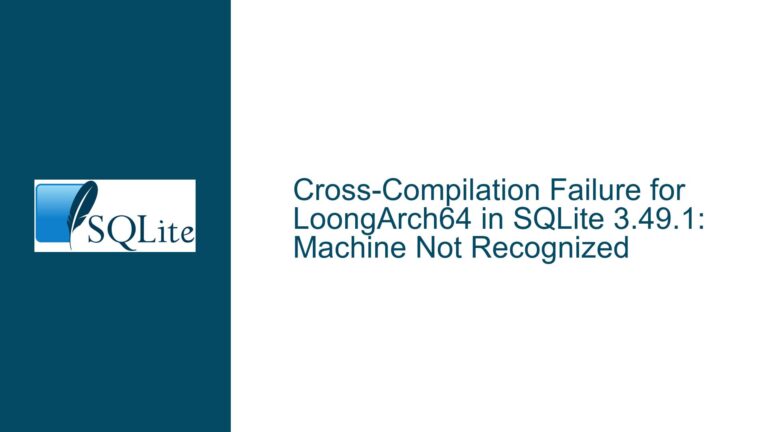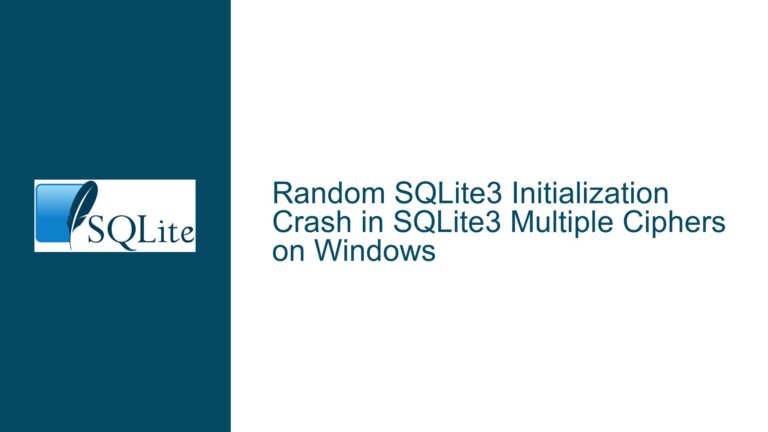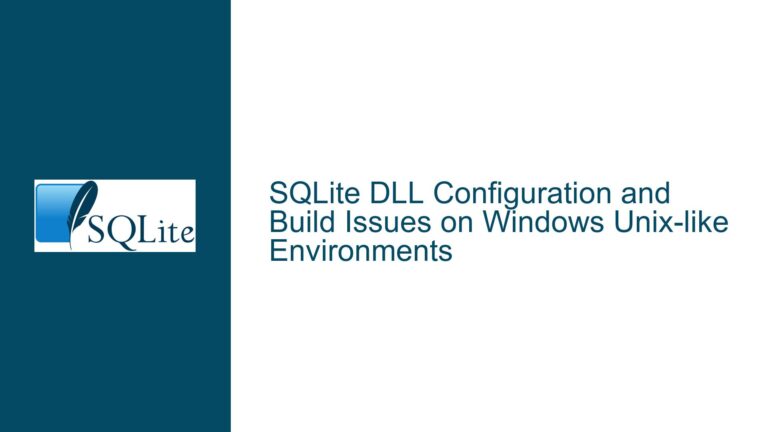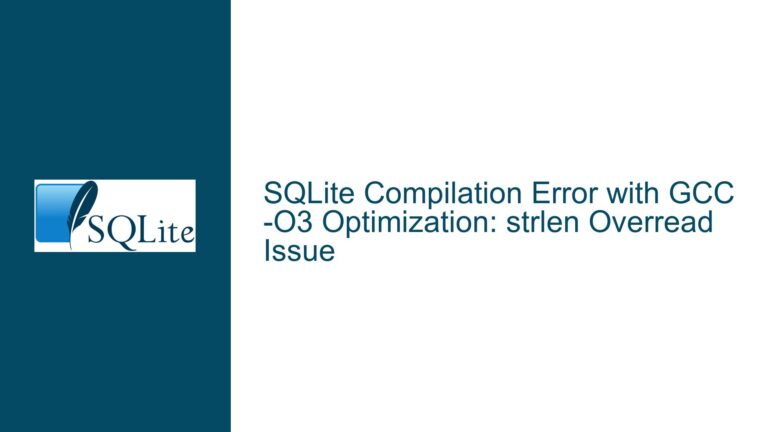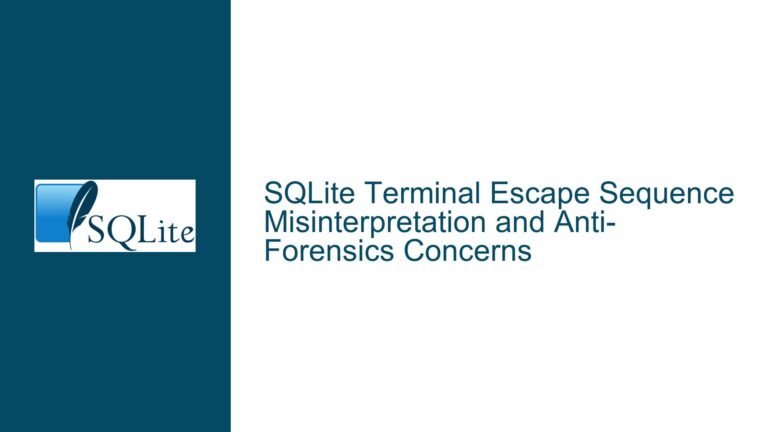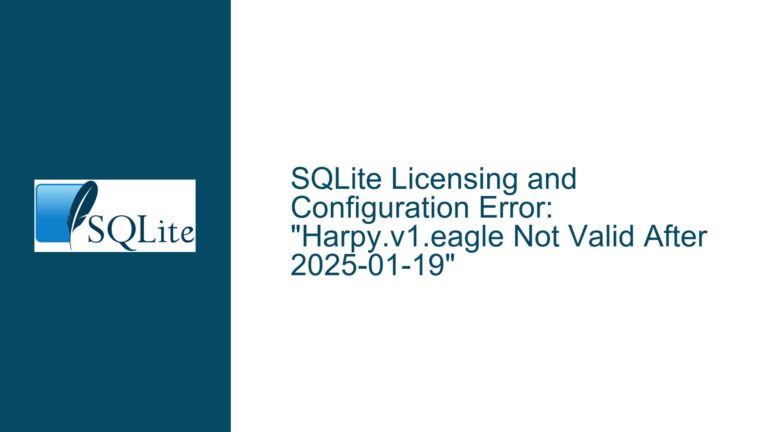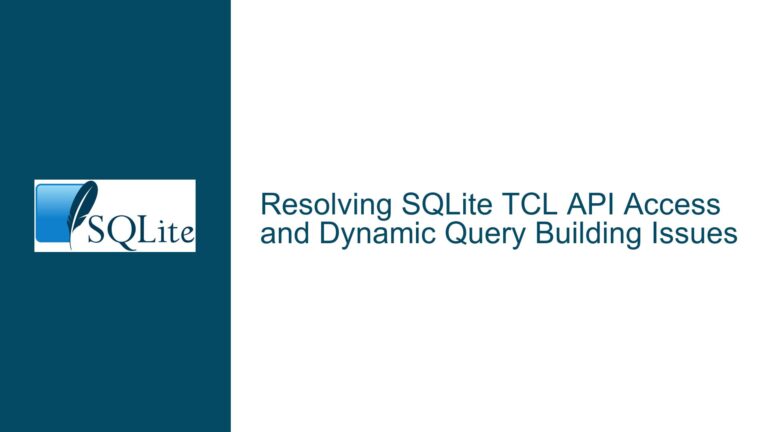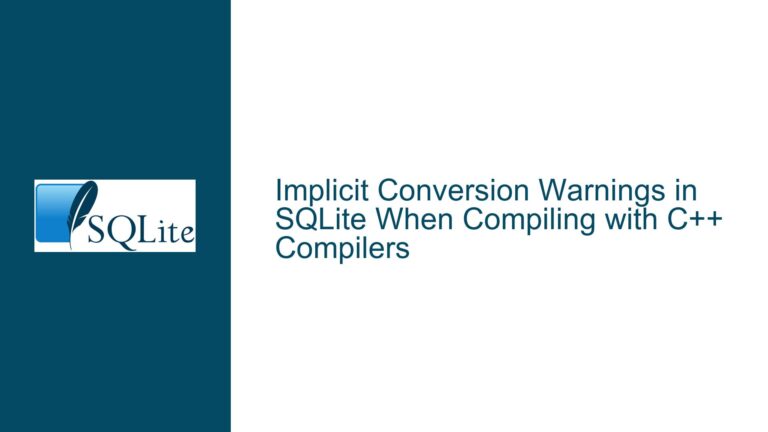Database Table Locked After eval() in SQLite Trigger
SQLite Trigger and eval() Interaction Causing Table Lock The core issue revolves around the interaction between SQLite’s eval() function and triggers, specifically when eval() is used within a trigger to dynamically create and modify tables. The problem manifests as a "database table is locked" runtime error, even though no other processes or connections are accessing…

